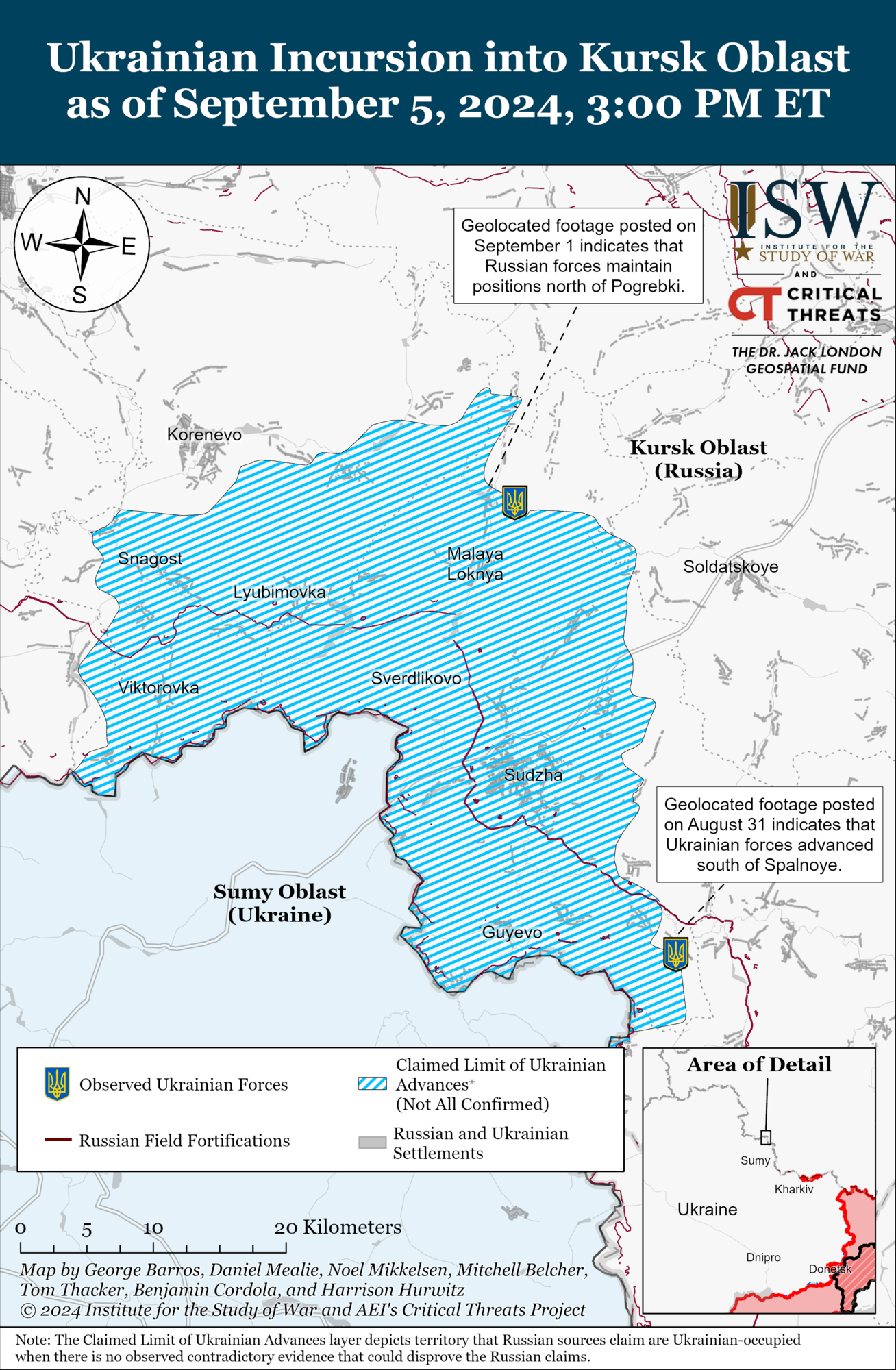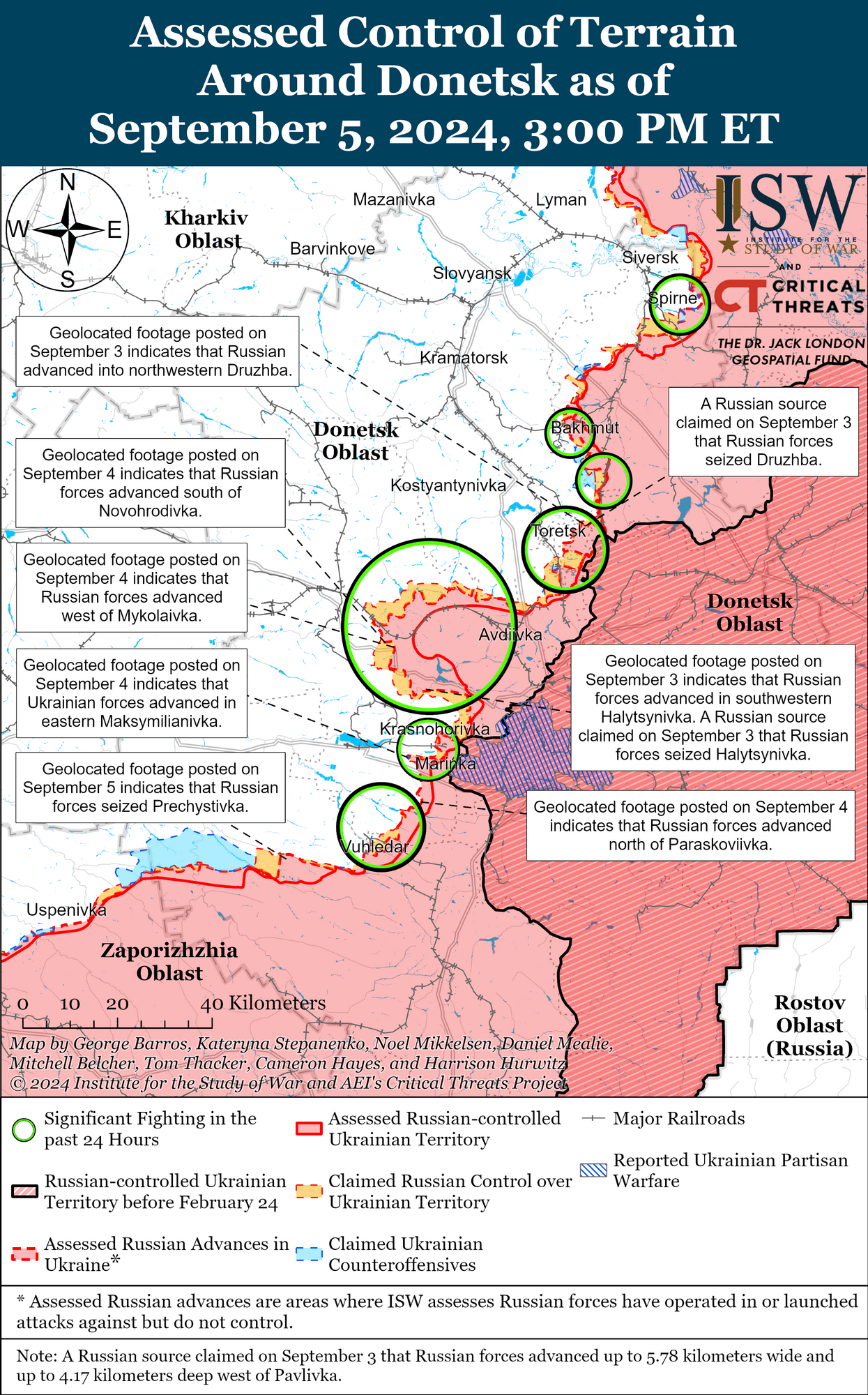War in Ukraine
Putin is trying to downplay the consequences of the Ukrainian Armed Forces' operation in Kursk: ISW explained its impact. Map
Russian dictator Vladimir Putin continues to downplay the operational consequences of the Ukrainian Armed Forces' operation in the Kursk region. In particular, he is trying to convince the Russian public that the Ukrainian presence in the Kursk region is acceptable in exchange for Russia's advance in the Donetsk region.
This is stated in a report by analysts of the Institute for the Study of War (ISW). During a speech at the Eastern Economic Forum on September 5, Putin said that the Ukrainian operation allegedly did not force Russia to redeploy forces from the frontline areas to the Kursk region or stop the offensive in key areas in eastern Ukraine.
He noted that Russia's main goal of capturing Donbas remains unchanged. Putin also said that the Ukrainian Armed Forces operation was intended to split Russian society, but instead led to unity and an increase in those willing to sign contracts with the Russian Defense Ministry. According to him, the situation in the Kursk region is allegedly "stabilized," and Russian troops are beginning to push Ukrainian forces out of Russia while accelerating offensive actions in Ukraine. He also stated that Ukraine suffered significant losses in manpower and equipment, but did not provide specific figures.
As ISW analysts emphasize, Putin's statements that the Ukrainian operation in the Kursk region had no operational consequences are clearly false. These events have affected the course of hostilities and are likely to continue to affect Russia's offensive and defensive capabilities after the Pokrovsk operations are completed.
In an interview with CNN on September 5, Ukrainian Armed Forces Commander-in-Chief General Oleksandr Syrskyi noted that Ukrainian actions had thwarted Russian plans to attack Sumy region and significantly reduced the threat of an invasion of northern Ukraine. Syrskyi also emphasized that the purpose of the operation was not only to prevent Russia from using the Kursk region to prepare for an offensive, but also to divert Russian forces from other parts of the front, create a "security zone," capture prisoners of war, and boost the morale of Ukrainian troops.
Syrskyi added that Russia was forced to deploy "tens of thousands" of troops to the Kursk region, including units of elite airborne troops, which were supposed to reinforce offensive operations in Ukraine.
In addition, the Ukrainian Armed Forces' operation in Kursk also allowed Ukraine to challenge Russia's control of the initiative in the war.
Putin's information efforts are likely aimed at convincing the Russian public that a Ukrainian presence in the Kursk region is acceptable in exchange for the capture of Pokrovsk. The Kremlin is reportedly trying to present a limited Ukrainian presence in the region as a "new normal" to buy time and space to respond to the invasion once it has taken control of Pokrovsk.
Putin's apparent "satisfaction" with allowing Ukrainian forces to hold Russian territory for an extended time is a sharp departure from traditional Russian rhetoric of inviolability of borders, calling into question the importance of Russia's declared "red lines."
Earlier it was reported that Russian dictator Vladimir Putin threatened to strike at Ukrainian nuclear power plants. The war criminal said that this would be a "mirror response" to the alleged shelling of the Kursk and occupied Zaporizhzhia NPPs.
As reported by OBOZ.UA, dictator Vladimir Putin is trying to achieve Ukraine's surrender. Therefore, the Kremlin leader's statements about Russia's alleged readiness for peace talks are just a screen. Putin still claims the territories of Ukraine and dreams of "incorporating" them into Russia.
Only verified information is available on the OBOZ.UA Telegram channel and Viber. Do not fall for fakes!





























